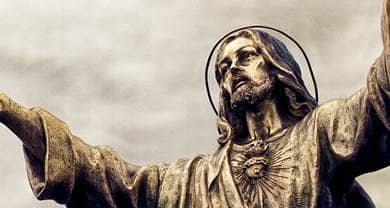- Trending:
- Pope Leo Xiv
- |
- Israel
- |
- Trump
- |
- Social Justice
- |
- Peace
- |
- Love

RELIGION LIBRARY
Lutheran
Principles of Moral Thought and Action
There have been debates in Lutheranism about the role that works do or do not play in salvation. Luther himself taught that even the saved remain sinners (but forgiven sinners); that works cannot merit forgiveness, which is a free gift from God; but that a saved Christian, free from worries about earning salvation, and eager to glorify God, will out of love perform good works for their neighbors. Unlike John Wesley, Luther did not teach that failure to perform good works would put your salvation at risk. Nonetheless, he did expect a good tree to bear good fruit, and if such fruit was not in evidence the claim to be saved might seem suspect. Before God (coram deo) works played no role in salvation, but before the neighbor (coram hominibus) they were necessary.
Despite the fact that Luther taught that salvation is a gift that in no way depends on good works, Lutherans have not backed away from engagement in the world. They have been morally active throughout history. While the first use of the law (moral commandments) in the Bible is to teach us that we cannot fulfill it on our own and need God's grace, the law is useful to the saved as a model of God's will for humans and as a means to discipline the body to conform to that will. The goal of Lutheran morality is to be Christ-like.
Like all Christian groups, there is no unanimity among Lutherans regarding the details of what the law in the Bible requires, and what the model of Jesus requires. The tensions have been particularly strained since the modernist controversies of the early 20th century. At this time the twin developments of Darwinian biology and historical criticism of the Bible led to a rift in all Christian denominations. (Historical criticism was a movement coming largely from Germany that argued that the Bible is best understood, most literally understood, as a historical collection of documents in which different authors are addressing particular audiences of their own contemporaries.)
In the United States this rift is partially institutionalized in the largest Lutheran denominations, the Evangelical Lutheran Church in America (ELCA) (about 5 million members) and the Lutheran Church-Missouri Synod (LCMS) (about 2.5 million members). The LCMS is by far the more conservative. It believes that the Bible is free of error, and that the 16th-century Lutheran confessions (found in the Book of Concord) are in complete harmony with the Bible. This has several results. The LCMS does not enter into fellowship with Reformed churches, but rather rejects and condemns their departure from the Lutheran confessions. They do not ordain women, they oppose abortion, and they condemn homosexual behavior. All, they claim, are unscriptural.
In 1997, the Evangelical Lutheran Church in America declared full communion (a relationship of agreement regarding core doctrines) with the United Church of Christ, the Presbyterian Church-USA, and the Reformed Church of America. The ELCA also declared that the major differences between it and Roman Catholicism on justification and salvation had been resolved. The LCMS rejects all these declarations.
For the ELCA, the Book of Concord is an important expression of Lutheran belief, but not binding in its entirety on modern Lutherans. The LCMS regards the Book of Concord as true and binding. This is in part a debate about the meaning of the Reformation. Did Luther's reform get it right once and for all, or did Luther initiate a dynamic process of continuous reform? If the latter, to be true to Luther one should not bind oneself to a 16th-century creed. The ELCA ordains women, and has committed itself to the eradication of sexism and gender inequality in the church.
While the LCMS is on the whole more conservative than the ELCA, like all mainline denominations the ELCA also has tensions within between liberals and conservatives. More conservative ELCA Lutherans argue that the Bible is literally true and inerrant, and that if certain passages condemn homosexuality, for instance, or forbid women from speaking in church, then that is divine law to be followed no matter how our own contemporary social context changes. These Lutherans tend to be social conservatives.
More liberal Lutherans argue that biblical authors mirrored the social mores of their own times, and so not all specific rules applied to us. (They point to the patriarchs' practice of polygamy in the Hebrew scriptures, or the forbidding of charging interest, to name just two examples, as social practices that have not transcended their own historical context.) What do transcend specific social contexts are the underlying principles of compassion and justice that take a very different form in our own context. (So, for example, contemporary justice seems to require the equal treatment of women and men, and so liberal churches have begun to ordain women as preachers and bishops.)
Conservatives have argued in response that to follow supposed underlying principles rather than specific written requirements allows one to read whatever behavior one desires into the Bible, thus building a human rather than a divine moral code. There is often more in common between conservative Lutherans and conservatives of other denominations (Catholic, Methodist, etc.) and between liberal Lutherans and liberals of other denominations then between conservatives and liberals of the same denomination. Divisions in Christianity tend to divide down liberal/conservative more than denomination lines today.
In the last decade there have been several shifts in the conservative/liberal split, and new issues that are difficult to fit into these categories, so that it is becoming more difficult to predict where specific Lutherans will come down on some issues. Some conservative churches have taken the lead in fighting poverty and AIDS in Africa and sex trafficking around the world, issues which in a previous generation might seem to fall into a more progressive social justice camp than what one might stereotypically assume about social conservatives. Conservative churches are often more integrated racially than liberal ones. Conservatives are split on global warming, some beginning to argue that the biblical command for humans to act as responsible stewards of the earth requires that we take action to ameliorate human causes. It is no longer clear if being "green" is liberal or conservative.










